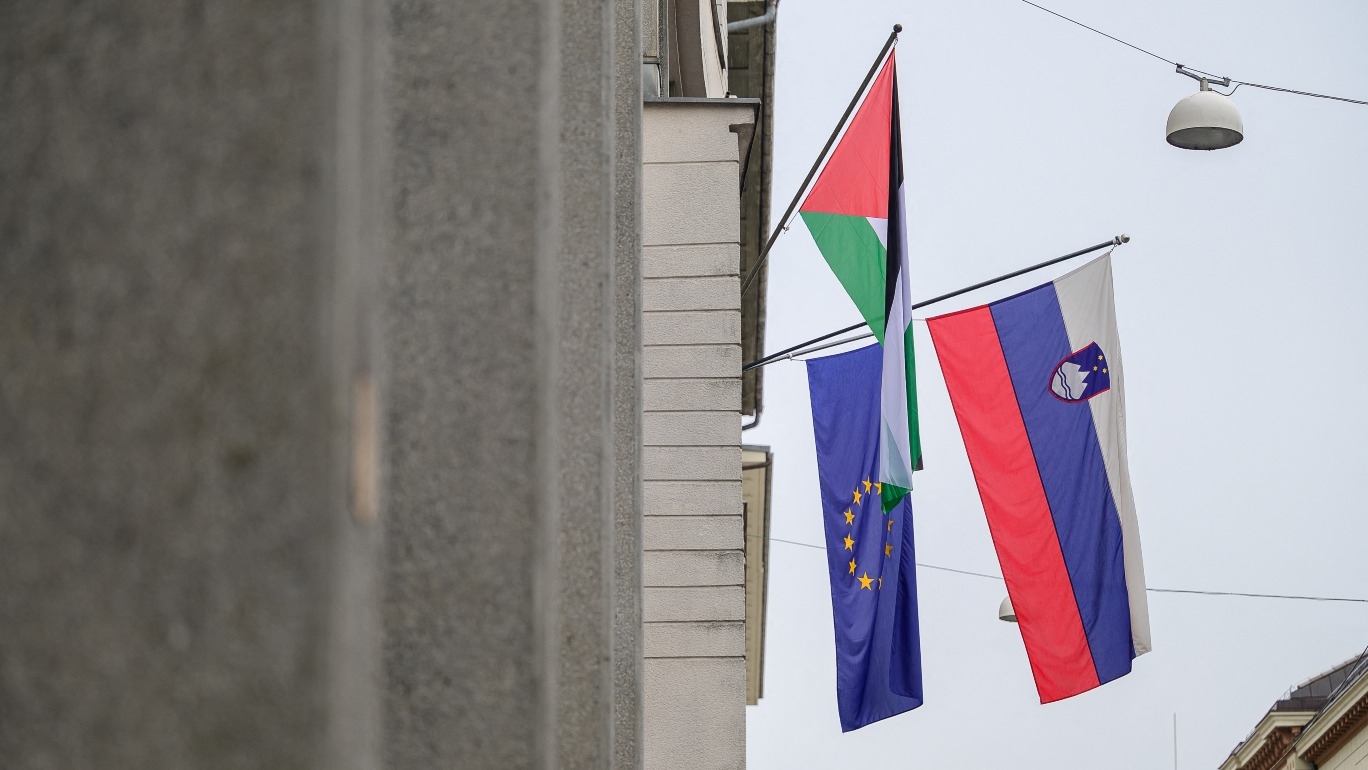Slovenia recognises independent Palestinian state

Slovenia on Tuesday voted in favour of the recognition of a Palestinian state, making it the fourth country in Europe to do so in the last month.
Last week, Slovenia's Prime Minister Robert Golob issued a motion to recognise a Palestinian state, and sent the proposal to parliament for final approval - a formality, given that Golob's ruling coalition holds a majority in parliament.
On Tuesday, 52 members of the country's 90-seat parliament voted in favour of the move, with no one voting against it. The other 38 lawmakers were not present for the vote.
“We started talking with our allies about the recognition of Palestine in February this year,” Golob told lawmakers ahead of the vote.
The move by Slovenia, a European Union member state, comes after Spain, Norway, and Ireland all moved to recognise a Palestinian state, decisions that have been met with outrage by Israel.
New MEE newsletter: Jerusalem Dispatch
Sign up to get the latest insights and analysis on Israel-Palestine, alongside Turkey Unpacked and other MEE newsletters
Over 140 countries, making up more than two-thirds of the United Nations, recognise a Palestinian state.
Since Israel's war on Gaza began last October, Israel has become increasingly isolated on the world stage, as the death toll of Palestinians continues to rise in Gaza.
Israeli forces have killed more than 36,000 Palestinians, according to the health ministry in Gaza, and have targeted schools, hospitals, as well as UN shelters.
The United Nations General Assembly voted last month in favour of expanding Palestine's membership rights at the world body, paving a pathway for Palestine to receive full UN member status, which would allow it to vote on and introduce resolutions.
A group of UN experts have also called for countries to recognise a Palestinian state, a move they say would help push for an agreement to a two-state solution.
"This is a pre-condition for lasting peace in Palestine and the entire Middle East – beginning with the immediate declaration of a ceasefire in Gaza and no further military incursions into Rafah," the experts said.
"A two-state solution remains the only internationally agreed path to peace and security for both Palestine and Israel and a way out of generational cycles of violence and resentment."
Getting the Security Council to vote on a similar resolution would be difficult, however, given the US's opposition to such a move.
The US, which holds veto power at the Security Council, threatened that if the Council reconsiders its vote on Palestine's member status, it will once again exercise its veto.
Middle East Eye delivers independent and unrivalled coverage and analysis of the Middle East, North Africa and beyond. To learn more about republishing this content and the associated fees, please fill out this form. More about MEE can be found here.

